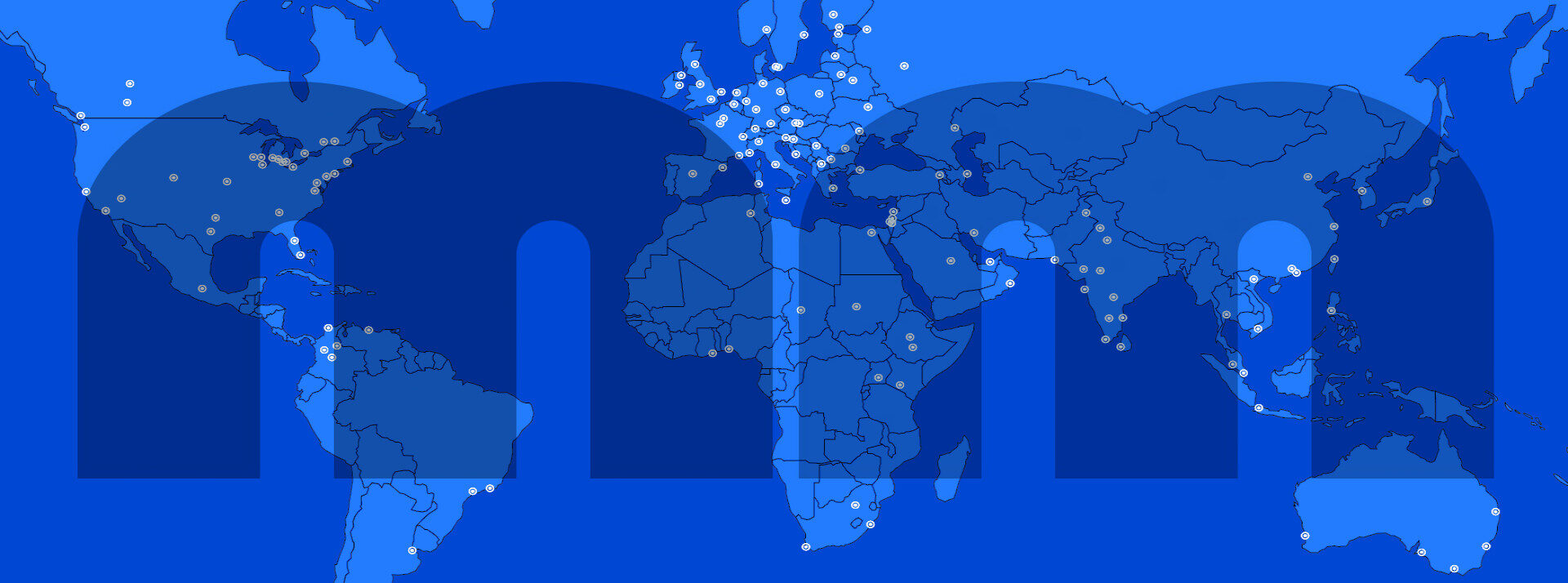22nd MobileMonday Taipei Event Report By Steve Follmer
Posted on: July 13, 2009 – Filed under: Taipei
Steve Follmer consulted in Silicon Valley for many years, where he co-founded live365.com. He is currently between startups and analyzing opportunities in the mobile space. Steve holds a BSE degree from Princeton University.
iPhone Gold Rush – New Business Opportunity driven by iPhone.
Our 22nd event convened with a healthy crowd at Mary’s Bistro Cafe for some hearty Australian fare.
Other Steves (Jobs, Wozniak, Jurveston, McGarrett, Ballmer…) were unavailable, and I was pleased to accept an invitation from Scott Lo (Business Development Manager at Toro) to make the first presentation: How and why you can get a free iPhone, and other predictions about the future of the mobile industry. I’m creating a small startup involved in LBS, which will target the US market partly because of its size and also because I don’t want to compete with my colleagues here in Taipei. I’ve been analyzing the iPhone, and Scott asked me to share my findings with you.
Wikipedia has a decent table summarizing the three different generations of iPhones http://en.wikipedia.org/wiki/IPhone_models. The latest model, the 3GS can be pre-ordered from CHT and should be available in August, probably the 19th.
But I begin with two primary criticisms of the iPhone. First, it lacks support for background apps. How can you run a chat client without background apps? Well, they’ll fix it, but give them a year or two. I suspect this is related the second criticism: the battery barely lasts a day. Indeed in the 3GS, they had to underclock the CPU. Apple is rumored to have built a team of custom chip designers; I suspect this is to both cost reduce the iPhone and increase its battery life.
So, the iPhone is not perfect, but on balance its more than good enough. Its on time enough and its on budget enough. They’ve built a huge lead on Google’s Android phone. They’ve sold over 20 million and are well on their way to overtaking the 50 million Windows Mobile devices early next year.
Now, as important as the hardware and software, is the App Store. It really bulldozed the barriers facing small creative developers. I know some of these developers and they have been unhappy with the carriers. Well, lets just look at the record. The first cell phone call was made in April 1973. The iPhone was first sold in June of 2007. So the carriers have had decades, during which approved and released, I will guess, a few hundred applications. And in two years, Apple released 50,000 applications. Take a look at the App Store Wall from Apple’s developer conference last month.
So if the iPhone is so successful, why would they make it free? Apple is never eager to lower prices. Well, there are three reasons I’m predicting this. The first is funny math. What does the iPhone actually cost, to apple and to the consumer. Lets’ do some rough calculations using USA numbers. Everyone is going around talking about the $99, $199, $299 iPhone. But the reality is you also sign a 2 year contract at over $70 a month. What actually happens is Apple makes the iPhone for less than $200, and when you sign up with their carrier partner AT&T, you agree to pay AT&T nearly $2000 over those 2 years. And AT&T gives Apple $500 out of that revenue stream. So at the first level, Apple makes a device for $200 and sells it for $700. And these numbers are borne out, approximately, in Hong Kong, one of the countries where you can simply buy an iPhone for cash, with no contract, and there the new models cost HKD 5500 and 6500. Last year Apple made a big splash by reducing the price of the iPhone by $200… while at the same time increasing the cost of the 2 year contract by $10 a month. So they actually raised the cost, but many buyers don’t analyze the purchase and in packaging the cost in this way is clearly effective.
The second reason I think the iPhone will be free is that Apple is sometimes willing to sacrifice margins for long term gains, as we can tell from their Mac Mini. As we can estimate from a tear-down by iSuppli, the mac mini costs $376 to manufacture, but sells for a mere $599. http://www.isuppli.com/NewsDetail.aspx?ID=20432 By contrast, the iPhone 3GS costs $179 and bring in a revenue stream of $700 or up. http://www.isuppli.com/NewsDetail.aspx?ID=20398 I don’t have Apple’s exact spreadsheets but what is clear is that Apple is wiling to cut margins on a product if it serves their big-picture long-term strategy. The Mac Mini is strategic as a box that can slide in and convert a Windows user to a lifetime mac customer. The iPhone is strategic for capturing phone users and a long term revenue stream of carrier fees, and music, video, and software sales, and even Mac computer purchases.
I really have to give respect to Apple: first they kick the music industry in the ass, then they kick the mobile industry in the ass, and to top off these ass-kickings are strategically related. Breathtaking strategy at the highest level.
The third reason is competitive pressure. Google has said there will be 20 different Android handsets this year. You can bet there will be a lot of diversity of features and prices. And Google will harness the marketing budgets of those 6 or 8 manufacturers, and hundreds of carriers, all promoting their Android handsets. And I further suspect some carriers may be a bit unhappy with Apple’s new world order and would like to use Android handsets to try to hold Apple in check.
So for these three reasons: hidden charges, long term big picture flexibility, and competitive pressure, I predict Apple will make the iPhone free. Now they may charge an extra $10 a month. And it may be the old low end model at first. But its going to be free, for anyone who signs a contract for $80 a month. This is Apple’s “ace in the hole” against Google, possibly as early as September. Of course they’re not completely free, and its only a $99 price reduction, but as Apple teaches us day after day, the psychological impact is paramount.
What are the broader implications of this for the mobile industry? First, the handset is no longer a handset. At a deeper level, the phone is not just a phone, not just a handset. For Apple is a channel for selling software, music, videos and computers. For Google a handset is rather, a platform for delivering ads (which can be location based). Eric Schmidt has said its mobile is going to be bigger than internet. And for Toro, it is a platform for mobile marketing, a 24×7 channel to the customer.
Apple and Google want to carpet bomb the planet with hardware and software. They are not in the business of selling widgets. They are in the business of capturing users and their long term revenue streams. And I submit that Microsoft, Sony-Ericsson, RIM, Nokia, are tied to outmoded business models that can no longer compete with the new models, and they will be hemorrhaging market share.
A second, related implication is that smartphones are going to accelerate their push downmarket into feature phone territory. Set top boxes for cable TV in the USA are also expensive, but they find a way to give them away or rent them out cheaply, because they enable far larger revenue streams, with high NPVs. Throw in the competition between Google and Apple and I only see prices falling.
The big picture involves 2 billion handsets in the world, with 1 billion more being sold this year, primarily as replacements. Perhaps up to 20% of these phones can be defined as smartphones. Sales figures from Q408 showed OS distribution as Symbian with 47%, RIM with 19.5%, Windows Mobile with 12.4%, Apple with 10.7%, and Google hardly on the chart. However, it is clear that things are changing quickly. I expect smartphones to push down market to beyond 30% in the next several years. And I predict Apple and Google to shoot to the top of that league table, with Nokia getting hurt the worst. Nokia, RIM, and Microsoft are more or less simply selling widgets and despite having slapped up app stores their business models are not built for the 21st century. They’re not positioned to pump ads and music through the handset to the consumer like Apple and Google are, and they will soon find themselves replaced at the top of the league table. Google have up to 20 handsets running Android within about 6 months, and in response Apple will drop their prices $99 thus making their low end model nominally free. You can download the presentation here.
Resources:
http://mashable.com/2009/03/21/iphone-economy/
http://www.techcrunch.com/2009/05/06/just-how-much-money-can-free-iphone-apps-make-quite-a-bit/
http://www.appleinsider.com/articles/09/06/11/why_apple_keeps_iphone_specifications_quiet.html
http://www.businessweek.com/technology/content/jun2009/tc20090612_492771_page_2.htm
http://moconews.net/article/419-report-smartphones-to-be-29-percent-of-total-market-in-2014/
http://www.youtube.com/watch?v=T2IMHuZXfl0 AppStore
http://www.youtube.com/watch?v=8To-6VIJZRE Ballmer
Having whet everyone’s appetite for the iPhone (and yes, I did just buy one), we greeted the presenters from Ayaris 9. This firm outsources iPhone development to their skilled team in India. Todd Enger learned to spec out products at Hewlett Packard; he and his team work with you to define your spec, and then they oversee its completion via their offshore team.
Included in their portfolio, they presented a GPS based coupon application, software to present medical videos, and even a karaoke application, among others. Further information is available via their website.


